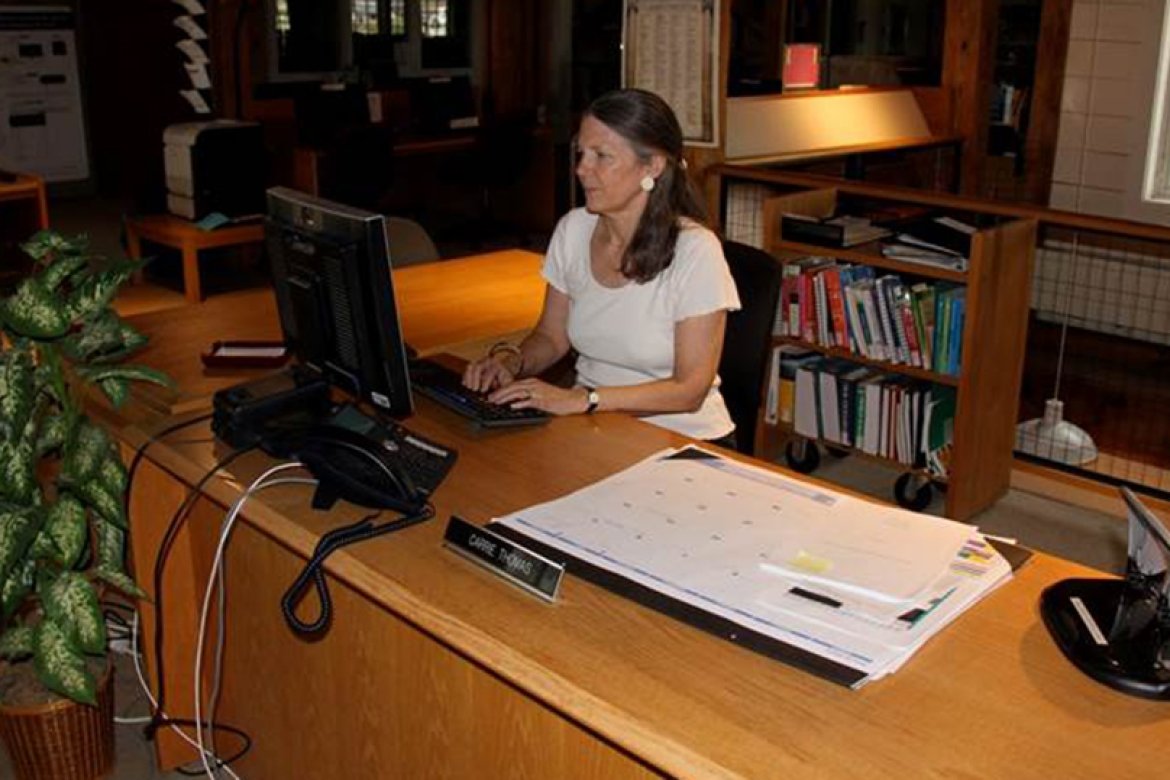The value of my history courses

Carrie Phelan Thomas '74, College Librarian
Major: History
Advanced Degrees: Masters in Library Service
Employer: Colby-Sawyer College
A typical day: I am the director of a small academic library at Colby-Sawyer College. Every day is a bit different but typical daily duties include processing interlibrary loans, covering the reference desk, and teaching information literacy sessions to students. Other less frequent job duties include collection development (deciding which books, e-books and databases to purchase and which ones to weed or discontinue), budgeting, scheduling staff, staff evaluations, reports to senior administrators.
How I got from graduation to where I am now: I went straight from MHC into grad school and got my MLS (Masters in Library Service). I have worked in four libraries (3 academic and 1 public) and one book vendor over the course of my career. My places of employment were somewhat dictated by my husband’s career moves but I don’t feel I have suffered from that.
I still value my liberal arts education. At the reference desk, you never know what type of question you will get next. It helps to have a well-rounded education and to always keep learning. The library field has changed immensely since I started in the mid-1970’s – you must stay abreast of new developments.
The best way to prepare for a career in library science: Getting a MLS is sort of like a union card, you need it to move up in the library field. Getting a second master's in a subject area is also a good idea if you want to specialize in one type of library work. Being computer savvy is also essential – even small public libraries use lots of computerized services now and you will probably not have anyone else around on a day to day basis to ask questions.
How my history major has helped me: Good oral and written communication skills are mentioned in almost every job ad I have ever seen and they truly are required. If you cannot impart your knowledge to others, if you cannot make your case to your superiors, you will never be successful. Finding and prioritizing information is what I do every day – it is an essential skill. I often find that some nugget of information I learned in a college course – a history course or any other – is useful in discussing a term paper with a student, evaluating a book for purchase, or assisting a faculty member with their research needs.
Transitioning from curriculum to career: I often find that faculty are the best models for students just in showcasing what they are doing with their own careers. Internships have proven to be quite useful for many students, to help them see what they can do with their academic skill set, to let them try out career paths they have not considered before and to afford them contacts with other people who might be able to help them in the future. I would certainly advocate that almost any major will be useful in finding a job or starting a career. You can always be trained on specific computer programs or business processes but if you don’t have the underlying writing and analytical skills, you will not be successful.
History is one of those all-encompassing academic disciplines that will always be relevant. You can take your history degree and move into any one of thousands of career areas. I would say congratulations on choosing wisely!